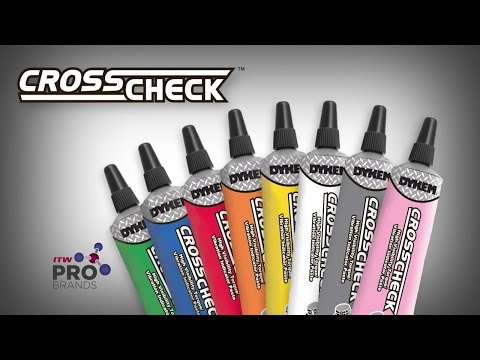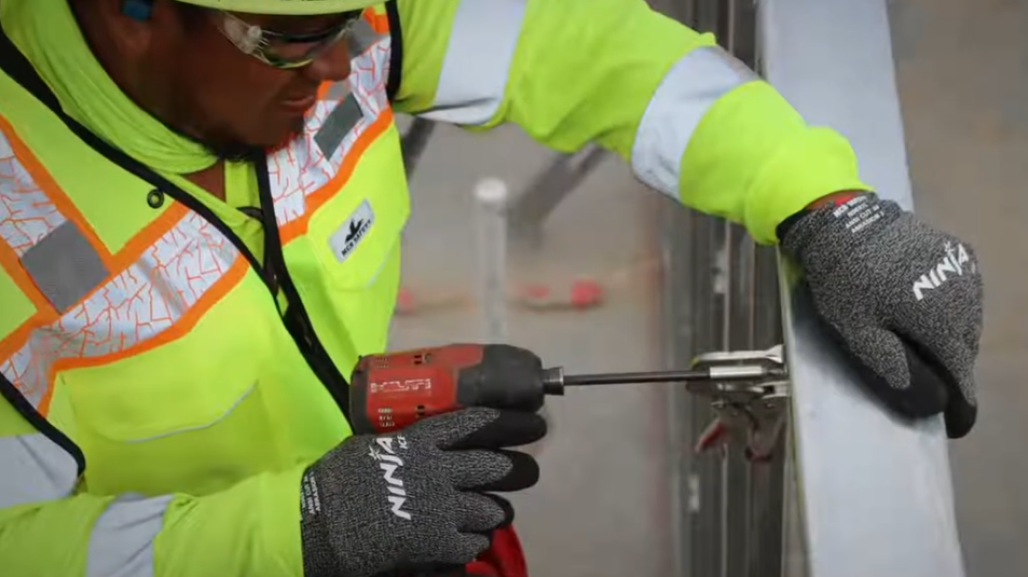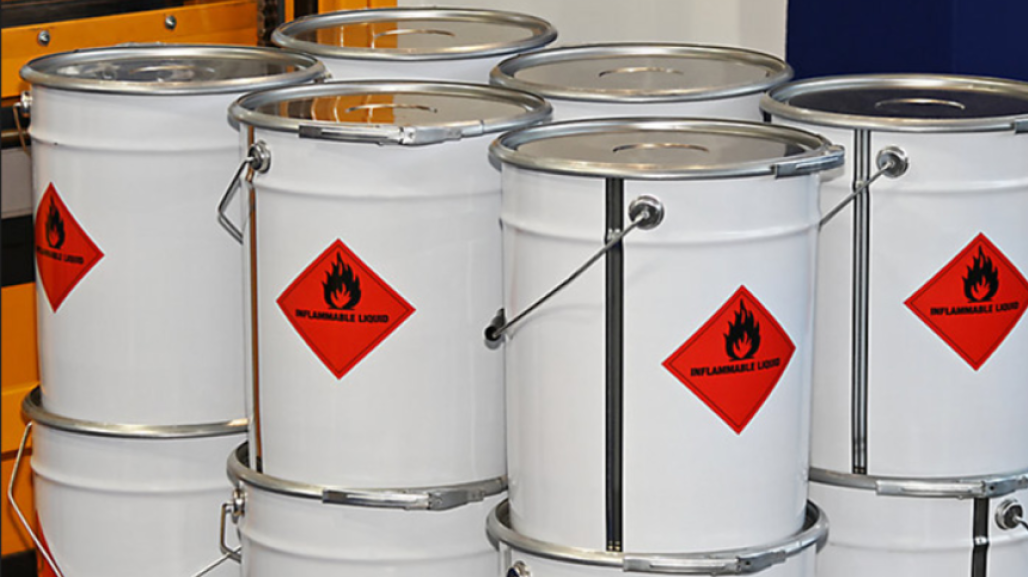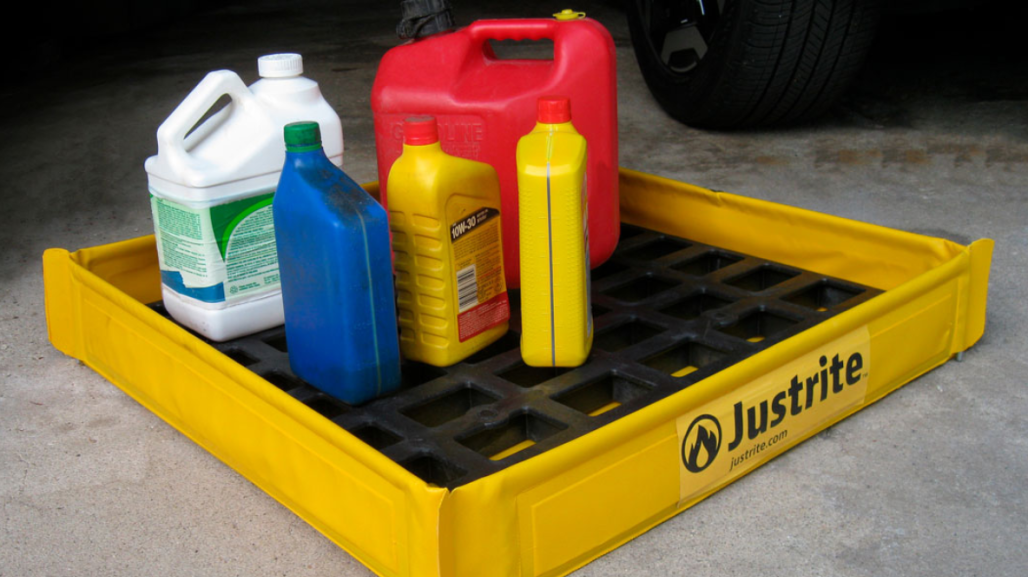With DYKEM Cross Check torque pastes—which indicate the integrity of connections held together with nuts, bolts and other fasteners—ITW Pro Brands offers manufacturers a tool that enables both safer operation of industrial equipment and better quality control.
Manufacturers in aerospace, automotive and other industries rely on the 3D indicator, developed in 2007, to verify that products meet specifications before delivery, while customers use them to alert safety inspectors when connections are loosening.
“It’s a huge timesaver because rather than having to physically check torque at every connection, they can visually check if a bolt or fastener has lost integrity, whether because of tampering or vibration during use,” says Greg Coy, product manager for ITW Pro Brands' DYKEM line.
Detecting connection problems early, Coy explains, can prevent failure of joints critical to machinery from airplanes to tractor-trailer rigs and roller coasters.
Not only is that an important part of complying with the Occupational Safety and Health Administration’s general duty clause, which requires employers to ensure workplaces are free of known hazards, it avoids consequences ranging from the expensive—product recalls and fines—to the physically harmful or even deadly.
Meeting torque—or twisting force—specifications on fasteners “is one of the most important tasks when assembling and performing maintenance on heavy equipment,” Coy says.
Preventing Connection Deterioration
But even with correct specifications, once equipment is in use, “fasteners become subject to the stress of everyday operation such as vibration, heat, temperature fluctuations, and moisture,” he says. “Even the most precise application of torque cannot prevent some form of deterioration over time.”
While a variety of marking tools are available to flag problems, the type needed depends on several variables. A simple paint marker may be sufficient for some connections, while a three-dimensional paste is preferable for heavy equipment or high-risk environments.
It’s a huge timesaver because rather than having to check torque at every connection, they can visually check if a bolt or fastener has lost integrity, whether because of tampering or vibration during use.
Greg Coy,
ITW Pro Brands
“Using torque paste eliminates the risk that comes with paint markers, such as washing off when exposed to fluids like cleaning agents and alcohol,” Coy says.
In fact, one of the product’s three variants—the aviation-grade Cross Check Plus—was designed specifically to meet a requirement that it be resistant to Skydrol, a fire-resistant hydraulic fluid used in aircraft that corrodes traditional paint and other torque-marking products.
Another, Cross Check Fast, delivers rapid drying and curing qualities, often in demand by maintenance and repair shops that aren’t engaged in mass production and don’t have the option of placing semi-completed pieces in a work cell to dry over time, Coy explains.
Such developments are in keeping with parent company Illinois Tool Works’ emphasis on what it calls customer-back innovation: identifying customers' problems and creating products to solve them.
Cross Check torque seals are available in a variety of colors, which buyers can use to signal factors from the identity of the inspector to the type of connection or even the time frame when the inspection occurred.
An airplane maker wanting to verify redundant checks, for instance, might assign one color to production line workers and another to quality control inspectors to show which stage a particular item has reached.
Such redundancies can be vital for manufacturers of all types since they provide a degree of protection from lawsuits if customers encounter mechanical problems after purchase.
Almost all of Cross Check’s colors are fluorescent, Coy says, which can allow inspectors to check dozens of nuts and bolts at night or in dark areas simply by using a flashlight.
“One great benefit of torque paste is the timesavings you gain by eliminating torque-checks on individual fasteners,” he says. “One quick glance will let you know if your mechanical and electrical connections are in good shape.”
Manufacturers may also use torque paste when trying to determine the source of a malfunction such as a fuel leak, identifying which connections are secure and which aren’t.
If they determine that there are no mechanical issues and that all the connections are torqued correctly, they can begin “looking for some other source of the problem,” Coy says.




![Why the Cheapest Safety Gloves Aren’t Always the Smartest [Infographic]](https://images.ctfassets.net/5j4ln2up7bt7/2gVEyRZylkBIlvTDtTRRc7/dde0c00e4846d6a88d56a7a68f09332a/mcr-PD5931_action4571-thumb.jpg)


